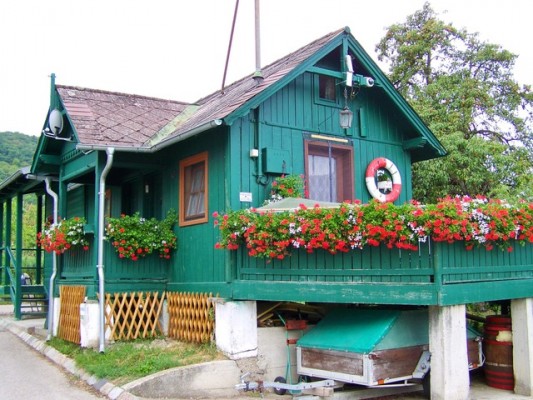Any agreement on property lease must be written. It must include the following information:
- the parties of the contract: contact details of the owner, name of the tenant(s), dates of the start end ending of the contract, its duration and the conditions of renewal;
- housing details: area, housing description, type of lease, if works have been done since the last rental;
- the rent: the fixed monthly rental, all charges included into it, conditions of payment of the charges not included into the lease, date and cycle of the rental payments;
- the deposit: the amount (cannot be greater than 1 month rent excluding charges for an unfurnished accommodation and 2 months for a furnished accommodation), conditions of utilization and reimbursement;
- The date of signature
Additional information that can be included into the rental agreement:
- The identification of areas for the private use of the tenant and those for common use to which he/she has access, and attachments rented with the principal object of the contract;
- The nature of the right of the landlord, whenever the contract is concluded on the basis of a temporary right or power to administer the goods of others;
- The registration number with the land registry;
- The regime of rent, or its update;
- The term;
- The existence of any horizontal property regulation;
- Any other clauses permitted by law and intended by the parties, either directly or by reference to a regulatory annex.
- Duration: open-ended vs. time-limited contracts (if legal, under what conditions?)
Some general recommendations to foreigners on how to find a rental home (including any specificities with respect to the position of foreigners on the national rental market)
- It is advisable for a foreigner who does not speak Portuguese very well to ask a native speaker to come along to the viewing of a dwelling in order to avoid possible communication problems or misunderstandings.
- Guest students should contact the international office or the student services of the university they will visit.
- Foreigners who come to Portugal for work may ask their employer or colleagues how to find an apartment or whether the company even offers special dwellings for their workers.
- It is advisable to ask for a document which proves that the landlord is the owner of the dwelling;
- It is advisable to find a rental home from an estate agency, especially for foreigners.
Main problems and “traps” in tenancy law from the perspective of tenants
- Some landlords tend to persuade tenants to pay less rent in exchange for not getting a payment receipt and not signing a contract, so that the landlord does not have to pay taxes over the received rent
- Contract terms are frequently formulated to give advantage to the landlord; therefore, tenants need legal knowledge or legal advice in order to defend their rights
“Important legal terms related to tenancy law”
|
PORTUGUESE |
TRANSLATION TO ENGLISH |
|
Resolução do contrato |
Termination of contract |
|
Obras |
Repairs |
|
Vícios do bem locado |
Defects of leased property |
|
Renda |
Rent |
|
Caução |
Security Deposit |
|
Benfeitorias |
Improvements |
|
Sublocação |
Sublease/Subletting |
|
Contrato com prazo certo |
Contract with fixed term |
|
Contrato por duração indeterminada |
Contract of open-ended duration |
|
Despejo |
Eviction |
|
Encargos da coisa locada |
Charges of the leased thing |
|
Reparações ou outras despesas urgentes |
Repairs or other urgent expenses |
|
Caducidade |
Expiry of the contract |
|
Transmissão da posição contratual |
Transmission of the contractual position |
Looking for a place to live
Rights of the prospective tenant
What bases for discrimination in the selection of tenants are allowed/prohibited? What about, for example, status as a foreigner, student, unmarried partner, or person with a short-term work contract?
According to the broad non-discrimination rule enshrined in the General Act of Equal Treatment, discrimination on the grounds of race or ethnic origin, gender, religion or belief, disability, age or sexual orientation is prohibited.
Foreign students can always resort to the international relations office of the host University and ask for help or tips on obtaining accommodations.
A person with a short-term work contract can have a similar solution. The employer can always help or even give accommodation (by contracting with a landlord or for a dwelling belonging to the employer).
·What kinds of questions by the landlord are allowed (e.g. on sexual orientation, intention to have children etc)? If a prohibited question is asked, does the tenant have the right to lie?
The landlord is allowed to ask any questions regarding the solvency of the tenant in order to assess if he/she will be able to fulfil his/her obligations.
If the landlord’s questions are regarding the solvency of the tenant, the tenant must answer truthfully.
A landlord cannot ask questions about the tenant’s sexual orientation since it gives rise to a possible discrimination.
·Is a “reservation fee” usual and legal (i.e. money charged by the landlord to allow the prospective tenant to participate in the selection process)?
- To ask for a “reservation fee” is not usual or legal.
·What kinds of checks on the personal and financial status of the tenant are usual and legal (e.g. the landlord requiring an independent credit report)?
The following checks on the personal and financial status of the potential tenant are common:
- Demanding submission of a salary statement from the prospective tenant and /or copy of the annual tax form
- Contacting a lawyer in order to do an inspection of lists of debtors maintained by the local courts or other credit agencies, since the landlord is not legally permitted to do so by him/herself.
·What is the role of estate agents in assisting the tenant in the search for housing? Are there other bodies or institutions assisting the tenant in the search for housing?
In order to find a dwelling, the tenant may consult an estate agent who assists him in the search, especially by proposing and executing viewings of dwellings corresponding to the tenants’ needs.
If a tenancy contract is entered into as the result of negotiations carried out by the estate agent, the same may demand a fee for its services.
If the tenant is searching for social housing, he/she can be assisted by municipalities or search online (on websites created by the state or in partnership with the state), for dwellings available for citizens with social needs.
These can be found, among others, on:
- www.mercadosocialarrendamento.msss.pt
- http://www4.seg-social.pt/venda-e-arrendamento-de-imoveis
- https://www.portaldahabitacao.pt/pt/portal/mercado_social_arrendamento/ mercado_social_arrendamento.html
If the tenant wants to find a dwelling on his own, he can search for housing advertisements in newspapers (dwellings are usually offered by the landlord himself) or he may search on the following popular internet sites:
- http://www.imovirtual.com/imoveis/arrendar/
- http://www.casa.iol.pt/pesquisar/tipo-apartamentos/local-porto/para-arrendamento/pagina-1/
- http://www.queroarrendar.com/
Required content of the Renting Agreement
- The identity of the parties, including nationality, date of birth and marital status;
- The identification of the dwelling;
- Housing purpose;
- The existence of a licence for use, its number, date and issuer;
- Amount of rent;
- Date of signature.
NB : In Portuguese law there are no specific laws regarding the situation where apartments are shared among students. They are treated as any other tenants, therefore, if an apartment is rented by several students, only with the consent of the landlord may there be a replacement of tenants.









